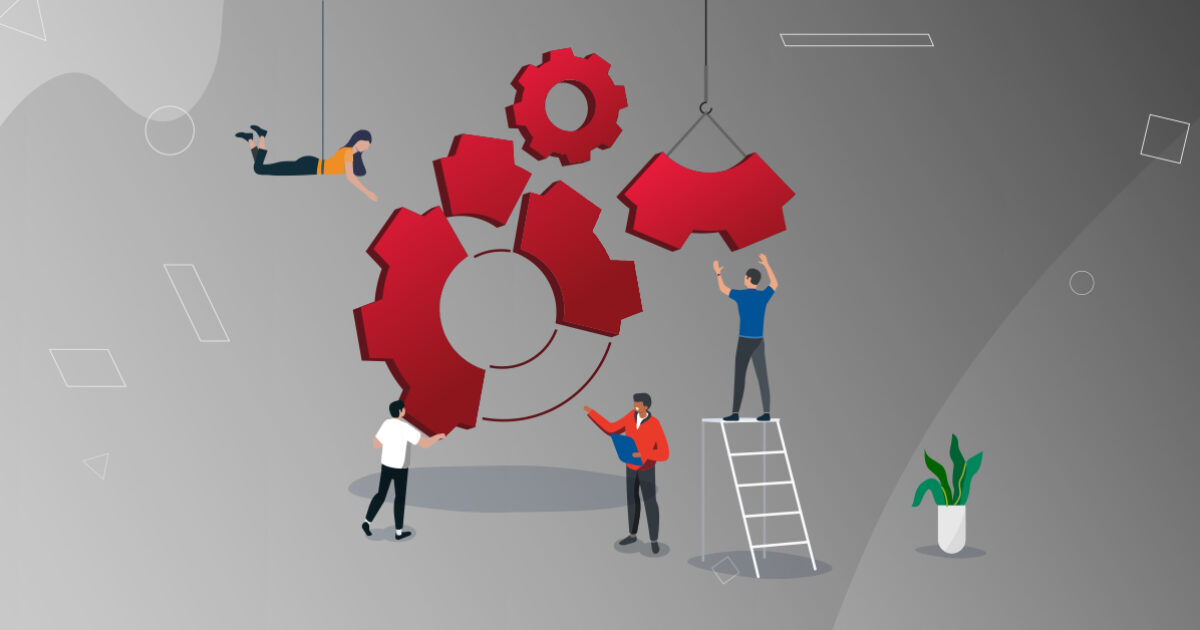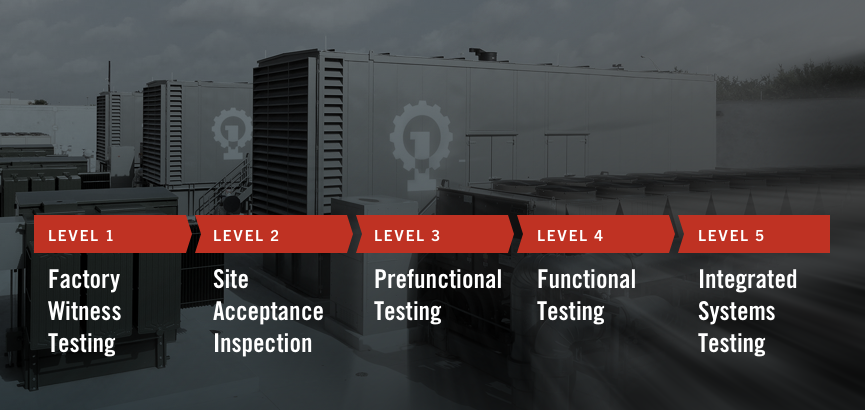
A data center commission is a meticulous process that is essential to ensuring the quality and reliability of a new data center. Because a data center commission is often announced just before a new data center opens, some may think it is a quick process that starts as soon as construction has finished. While the final stage of a data center commission is conducted after the completion of construction, the reality is that the commissioning process can be iterative and lengthy — sometimes starting as much as six months before completion.
So, what exactly is a data center commission, and how much does a data center cost? According to the American Society for Heating, Refrigerating and Air Conditioning Engineers (ASHRAE), a data center commission is the “quality-oriented process for achieving, evaluating and documenting that the performance of buildings, systems and assemblies meets defined objectives and criteria.” Basically, commissioning leads to a greater availability, safety, and efficiency process while reducing project and data center costs throughout its lifecycle.
Done properly, commissioning improves system performance throughout the life cycle of a data center. Better system performance not only optimizes data center performance, it also decreases operation and maintenance costs and cuts down on energy consumption for smaller utility bills.”
-Michael Donato, Data Center Knowledge
Before a data center commission can begin, the data center owner’s project team must outline the owner/operator’s requirements in a document referred to as the Owner’s Project Requirements (or OPR for short). The standards set by this document will guide the rest of the data center commission. Once the OPR is approved, the commissioning plan can be developed to ensure the standards outlined in the OPR are met by all parties involved in the project and that data center cost can be kept close to budget.
Here are the five levels of a data center commission that Data Foundry follows when building a new data center:

Data Center Commission Step 1 – Factory Witness Testing
The first level of equipment testing takes place directly inside the factory. When purchasing mission-critical equipment from a supplier, the data center owner/operator should outline the testing protocol in their purchase specifications.
This way the manufacturer knows the expectations in advance and performs tests according to the owner/operator’s standards before the equipment is approved and shipped to the site. This step might seem small, but it sets up success for the rest of the data center commission. In that way, it’s critical to get right.
Data Center Commission Step 2 – Site Acceptance Inspection
Once the equipment arrives at the construction site, it must be inspected before it is accepted. In most cases, the equipment does not match the owner/operator’s specifications when it arrives, even after level one testing is performed. That’s to be expected, but it also needs to be addressed, especially if data center costs are to be kept within budget.
Data Center Commission Step 3 — Pre-Functional Testing (PFT)
Pre-functional testing involves the inspection of the installation of all equipment. Both the contractors and commissioning agent will verify that all equipment is installed properly and that installation meets compliance requirements and owner/operator standards. Equipment is also started for the first time to check functionality. During these start-up tests, data center commission agents ensure ducts are airtight. They check for leaks and they check pressure gauges, valves, fans, and various other components. Of course, if errors in the installation are found, they must be addressed and fixed to meet standards. That would mean that PFT must be performed all over again for that piece of equipment.
Data Center Commission Step 4 – Functional Performance Testing
Although all the equipment has already been started and reviewed, functional performance testing is necessary to put every piece of equipment through a full cycle to test performance in all settings. According to an article in the ASHRAE Journal, “Each control loop of every system is checked to make sure its control sequence actually does what it is supposed to do.” It is during this phase that setpoint adjustments are made as necessary and equipment is properly tuned. Systems are tested and adjusted to run according to owner/operator standards.
Data Center Commission Step 5 – Integrated Systems Testing (IST)
Level five of the data center commission, also known as IST, is the moment of truth. It is the final reliability test before opening a data center. This is what we refer to as “pulling the plug”. Basically, the electrical power is suddenly disconnected while all systems are running, just as if an outage had occurred. The data center’s backup power systems (UPS and generators) should kick in, and there should be a seamless transition to backup power with no interruptions to cooling. Once a data center passes this test, it is ready to serve customers with mission-critical needs.
Creating Documentation
Physically testing equipment and systems is not the only goal of a data center commission. Throughout the process, systems operations and maintenance manuals are developed to help the data center operations team run the facility. This helps keep data center cost reasonable. Developing these processes to be as comprehensive and thorough as possible and training staff to implement them is just as important, if not more, to a data center’s overall reliability. These operations manuals provide valuable training for the facilities team and prepare them for efficiently troubleshooting and resolving incidents, should they occur, once the data center is operational.
Data Foundry’s Texas 2 data center in Austin is a great example of how a data center commission, when done right, helps to keep data center cost down. Want to know more or see it up close and in person?
